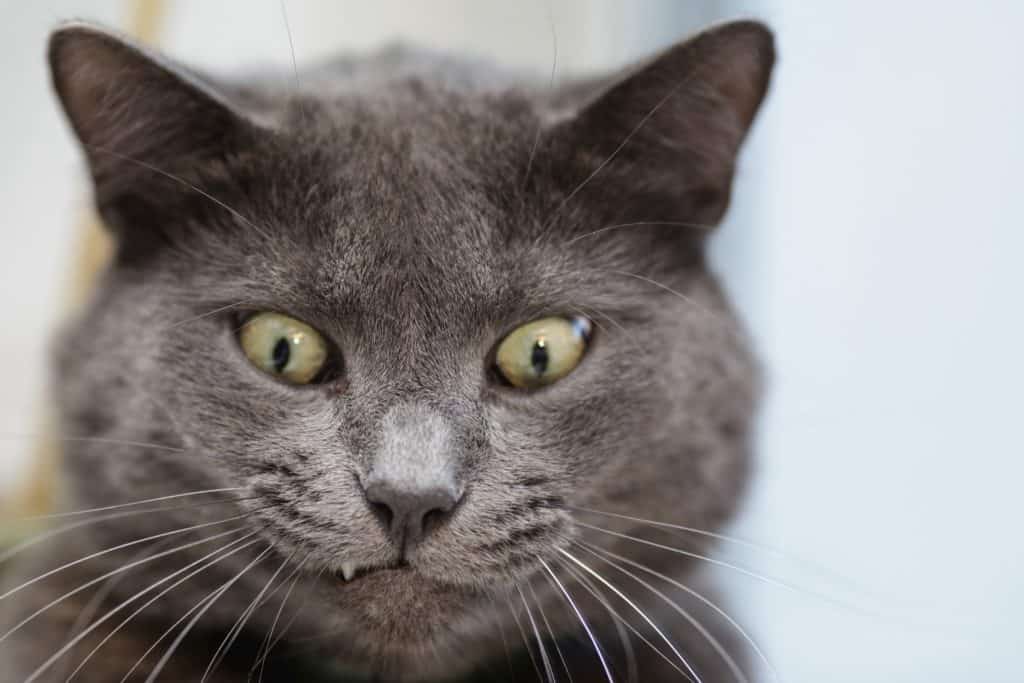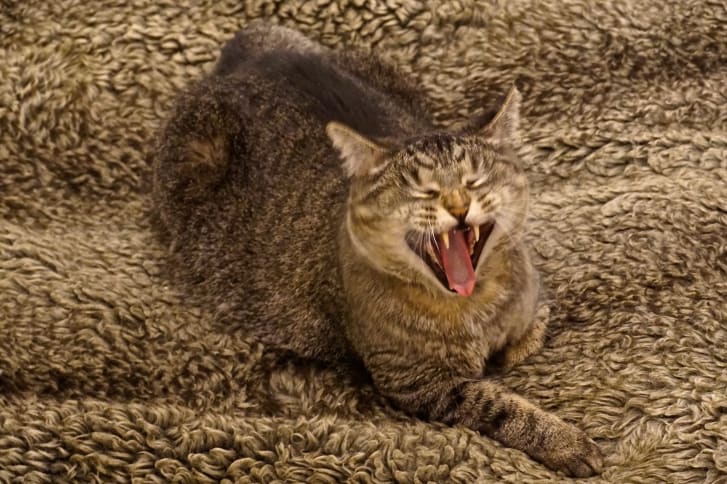Cats have a reputation for being aloof and independent. But, like all animals, cats can experience feelings of anxiety in response to change and separation from the people they’re attached to.

While it’s not as common in cats as it is in dogs, it is possible for our feline friends to feel anxious when we leave them alone. Read on to learn more about the symptoms of separation anxiety in cats and what you can do to help your kitty feel happier and less stressed when you’re not around.
Causes of separation anxiety in cats
Separation anxiety can be an issue for cats, just as it can be for people and other pets. It’s important to know that separation anxiety in cats is completely normal, and understanding the underlying causes of it will help us better care for our furry friends. Separation anxiety in cats is often caused by a drastic change in their environment, like when they move to a new home or if they experience the departure of another cat or pet in the home.
Other causes of separation anxiety may be due to excessive confinement (like keeping them exclusively in a single room of the home) or not getting enough attention from their owners. If we keep their comfort and security at the forefront of our minds and create a calm, stable atmosphere for them, our cats are much less likely to suffer from stressors that can lead to separation anxiety.
Symptoms of separation anxiety in cats
Separation anxiety is no fun for anyone—especially your cat! It’s important to recognize the signs of this disorder in our feline friends, so we can take steps to make their lives more comfortable. Common signs of separation anxiety in cats may include excessive meowing, behaviors like overgrooming or territorial marking inside the house, and pacing or restlessness when left alone.
If your cat seems unable to settle down after a period of time, it could be an indication of separation anxiety. As pet owners, it’s our responsibility to look out for their mental and physical well-being. With some patience and understanding, along with dedicated help from veterinary professionals and animal behaviorists, you can get your kitty feeling calm and content again.
Tips for preventing separation anxiety in cats
Separation anxiety in cats can be a difficult thing to manage. Keeping your furry friend entertained, happy, or relaxed while you’re away is key to preventing the condition.
Here are some tips to help:
• Establish a consistent routine. Cats thrive on predictability and familiarity, so having a regular feeding and playtime schedule can go a long way in alleviating anxiety or stress your cat may experience when you leave them alone.
• Provide mental stimulation. Give your cat plenty of activities to keep their mind engaged while you’re away. Puzzle toys, catnip toys, and interactive playtime together before you leave are all great ways to keep your kitty entertained, stimulated, or tired enough to rest calmly while you’re away.
• Spend quality time together. Make time for daily cuddle sessions and bonding with your cat, so they look forward to being in your company rather than feeling anxious when you have to leave the house.
• Visit the vet. If your cat continues to exhibit signs of anxiety, it’s best to consult with your veterinarian or an animal behaviorist who can assess their needs and provide treatment options tailored to your kitty’s individual needs.

How to help a cat with separation anxiety
Taking care of a pet is a huge responsibility, and separation anxiety in cats can be especially challenging. Fortunately, there are steps you can take to help your cat cope and keep them as healthy and happy as possible while they adjust to being alone.
Firstly, reuniting positively with your cat when you return home after being away can help to ease any anxiousness; warmly greet them rather than greeting them with criticism if they misbehaved while you were away. Distracting them with toys can promote positive behaviors and provide positive reinforcement when you do return home.
Lastly, don’t forget that cats need companionship – it’s common for cats living in single-cat households to develop separation anxiety since they don’t have another cat to keep them company – so consider adopting or fostering another cat so that yours has a furry friend while the humans of the house are away. Just be sure to introduce them properly to ensure a harmonious friendship between housemates.

When to see a vet for separation anxiety
Separation anxiety in pets can be a heartbreaking thing, both for the pet and their owners. The good news is that it can be managed with the right help. It’s important to recognize when your pet is exhibiting severe separation anxiety so you can seek medical advice as soon as possible. Symptoms like excessive vocalization, restlessness, and destructive behavior are all signs that your pet may require assistance from a veterinarian. With the assistance of a vet, you’ll have access to helpful suggestions based on your individual situation while they provide medication or advice on behavioral modification techniques. Taking care of your favorite furry friend is essential and taking action if they’re showing signs of distress should be done without delay.
Separation anxiety in cats is a serious issue that shouldn’t be ignored. Don’t be overwhelmed when it comes to helping your kitty feel more secure. By being more observant and proactive, you can keep a close eye on your cat for signs of panic and distress when you have to leave home. It is important to note that if your cat displays severe signs of panic and refuses food or seems unresponsive, it’s always best to take them to the vet for further evaluation of their mental health.
As pet owners, we should never forget that our cats are living creatures with emotions that must be taken seriously. Remembering the basics of cat behavior, following the tips provided here, and visiting the vet as necessary can all make an invaluable difference in helping improve our cats’ emotional well-being – thereby improving both their quality of life and your own.
The Catington Post is reader-supported. That means, if you make a purchase through links on our site, we may earn an affiliate commission. All images and names which are not the property of The Catington Post are the property of their respective owners.



